55 F. high in the Twin Cities Monday.
49 F. average high on November 3.
55 F. high on November 3, 2013.
November 3 in Minnesota Weather History:
1982: 20 inches of snow falls in the Kabatogema area.
1901: With a high temperature of only 22 and a low of 15, 175 boxcars of potatoes were in peril at the Minneapolis rail yard. Workers scrambled to move the rail cars full of tubers in roundhouses and transfer potatoes to refrigerated cars. Individual stoves had to be purchased on the spot for 59 remaining cars. Thankfully, most of the spuds were saved.
1853: Cold snap begins at Ft. Snelling. The next four days would be 16 degrees or lower.
1727: The first outdoor celebration at the chapel of Fort Beauharnois on Lake Pepin was postponed due to "variableness of the weather."
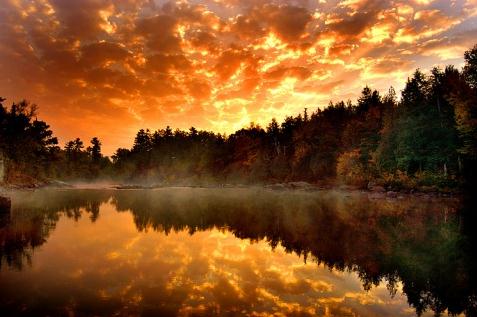
Vote
"No one pretends that democracy is perfect or all-wise. Indeed it has been said that democracy is the worst form of Government except for all those other forms that have been tried from time to time" said Winston Churchill in 1947.
Researchers in 2007 released a report which suggests that Republicans should pray for rain on Election Day. "It is clear from our results that Republicans benefit from precipitation on Election Day." Not sure what that means for national senate races, but a dry, partly sunny sky cooperates with Minnesota voters today; highs in the low 50s.
Reasonable.
Old Man Winter has been fairly subdued in recent weeks but he goes on a Minnesota joy-ride early next week. ECMWF model guidance shows a chance of a little accumulating slush next Monday, followed by a blast of January-like chill. Temperatures may not climb out of the 20s next week at this time.
Our next clipper arrives Wednesday; rain ending as wet snow - a couple inches possible Brainerd to Hinckley Wednesday night.
None of this should come as a great shock. Average November snowfall at MSP is 9.3 inches. Last year only an inch fell. And we all know what happened next. Fingers crossed.
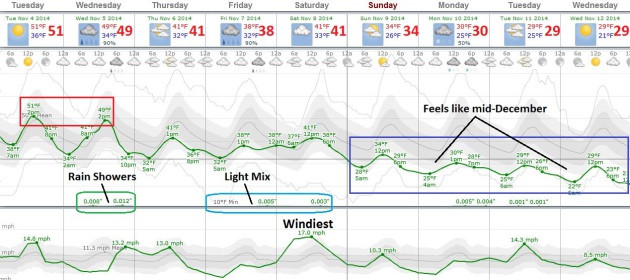
The Honeymoon Is Almost Over. Two more days of temperatures close to average, and then a slow temperature tumble by late week, accelerating next week behind an even stronger push of Canadian air. Rain showers are possible Wednesday; the atmosphere may be cold enough for a light mix Friday and Saturday (probably nothing sticking), but colder air keeps temperatures 15-20F colder than average the first half of next week, and I could see a coating of slushy snow by Monday. Graphic: Weatherspark.
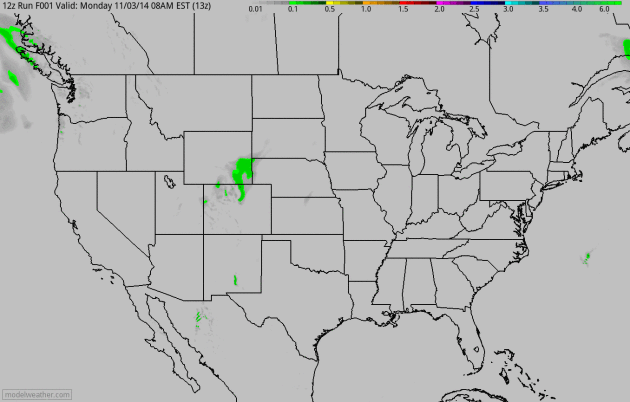
Soggy Election Day Southern Plains, Mid South, Pacific Northwest. The East Coast stays dry today; no issues getting to the polls, but showers are likely from near Detroit and Indianapolis to Little Rock and Oklahoma City, where rain may be heavier and steadier. Skies clear over Minnesota with highs near 50F. NAM 4 km accumulated precipitation product: NOAA and HAMweather.
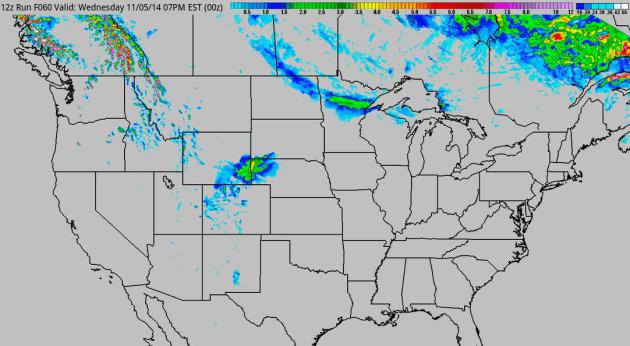
60-Hour Snowfall Potential. A little slush is possible over northern Minnesota by Wednesday night as a clipper drags colder air south of the border, although I expect mostly rain in the Twin Cities Wednesday. The panhandle of Nebraska may see a plowable accumulation by midweek. Source: HAMweather.
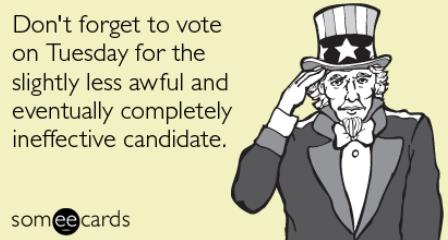
- In bad weather, Republican supporters are more likely to vote.
- Decided voters are almost twice as likely to vote in bad weather as undecided voters.
- Icy roads are the biggest weather impediment to voters age 55 and older, impacting roughly 1 in 8 such voters.
- Those with income levels less than $50,000 a year are less likely to vote on a bad weather day than those making more than $50,000 a year...."



Photo credit: Wearable technology, photo via COM SOLUD, via Creative Commons license on Flickr.
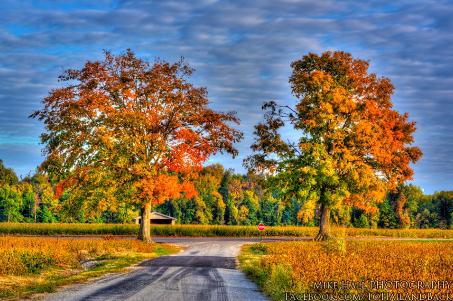
TODAY: Partly sunny & breezy. Go vote. Winds: W 15+ High: 53
TUESDAY NIGHT: Clear to partly cloudy. Low: 35
WEDNESDAY: Showers may end as a little snow late. High: 44
THURSDAY: More clouds than sun, cold breeze. Wake-up: 32. High: 41
FRIDAY: Sunny start, clouds increase late. Wake-up: 28. High: 43
SATURDAY: Cloudy & cold. Few flurries? Wake-up: 37. High: 39
SUNDAY: Intervals of sun, still cold. Wake-up: 27. High: 37
MONDAY: Period of wet snow possible, especially far southern MN. Wake-up: 28. High: 32
* Photo credit: Mike Hall.
Climate Stories...
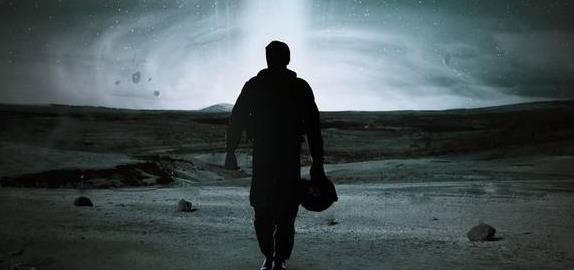
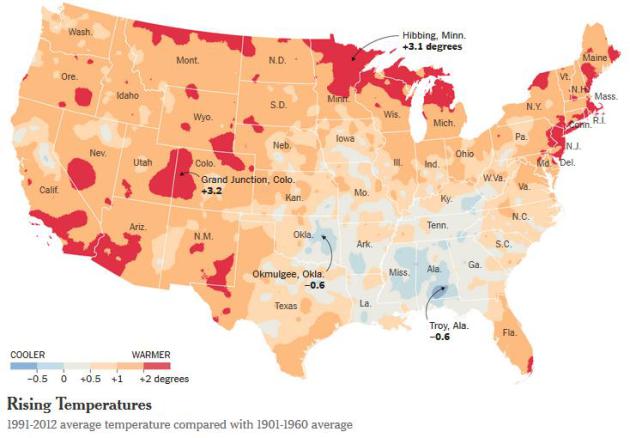
The Missing Campus Climate Debate.
350.org continues to push for divestment of fossil fuel investments on
America's campuses, but the results have been less than overwhelming.
Here's a clip from a story at The New York Times: "...This unique issue is being decided by trustees, who see their responsibility as maximizing returns. Gofossilfree.org
has identified only 41 schools with investor responsibility committees,
but they are advisory, with authority reserved to the fiduciaries. Of
course, global warming is at bottom a dilemma about the nature of
fiduciary duty — about whether that duty is solely to make money or
whether we also owe an ethical obligation to endangered species, the
inhabitants of low-lying islands and our children. If this debate
included more voices, one can’t help but imagine that our universities
might construe their obligation more broadly." (Graphic credit: New York Times).
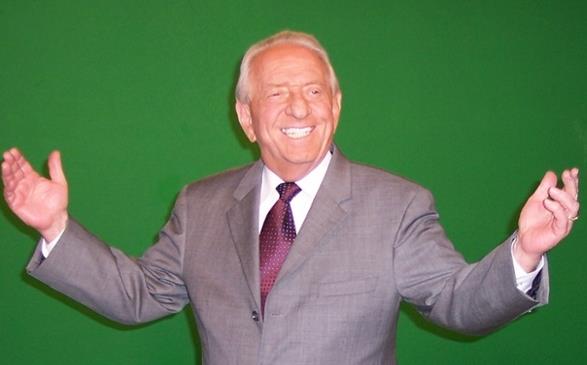
Weather Channel Co-Founder John Coleman Prefers Conspiracies to Climate Science. Because sometimes conspiracy theories are just easier. Thinking is hard work. Here's an excerpt from The Guardian: "...Coleman has publicly denied the scientific reality of human-caused global warming for years, telling Fox News in 2008
that he wanted to sue Al Gore, for example. There’s no new content in
these latest interviews; just the usual long-debunked climate myths and
conspiracy theories. Coleman is apparently considered a credible climate
interviewee because he was instrumental in creating The Weather Channel
32 years ago, but he’s woefully misinformed when it comes to climate
science..." (File photo: Wikimedia).
"Why Does Anyone Pay Attention to John Coleman on Climate Change?" Jason Samenow asks the rhetorical question at Capital Weather Gang.
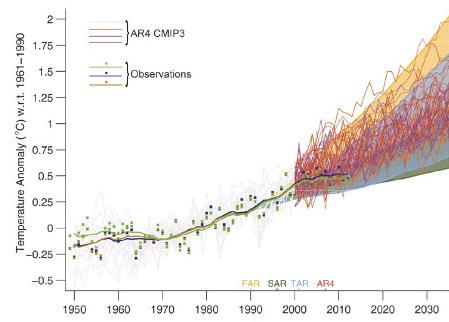
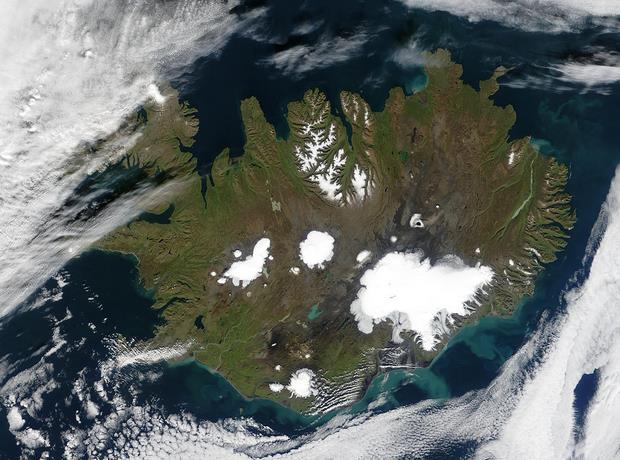
No comments:
Post a Comment